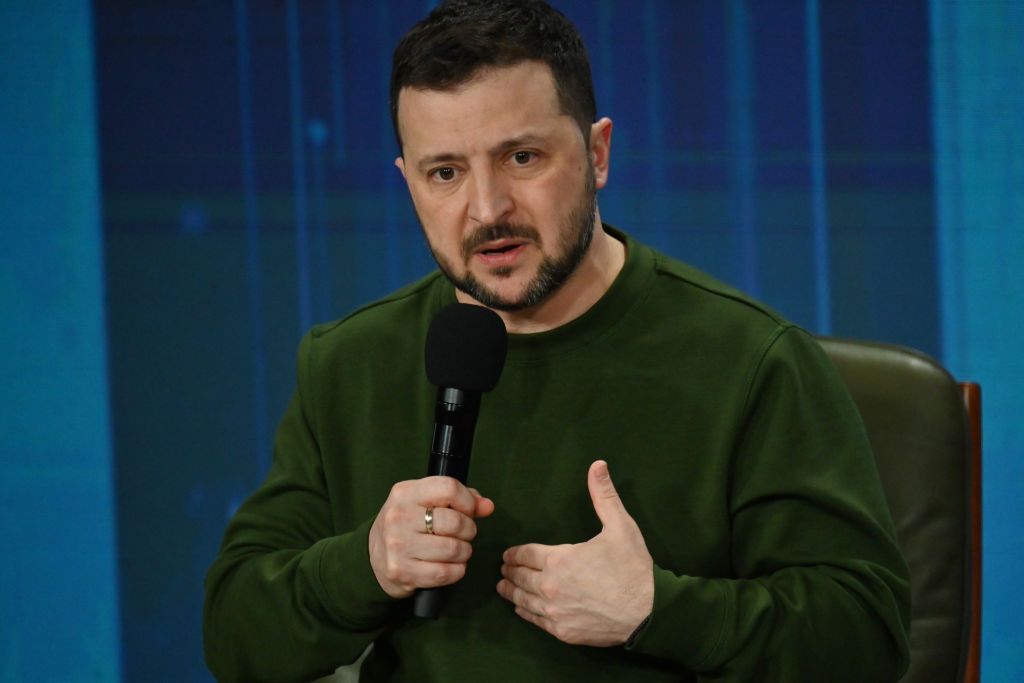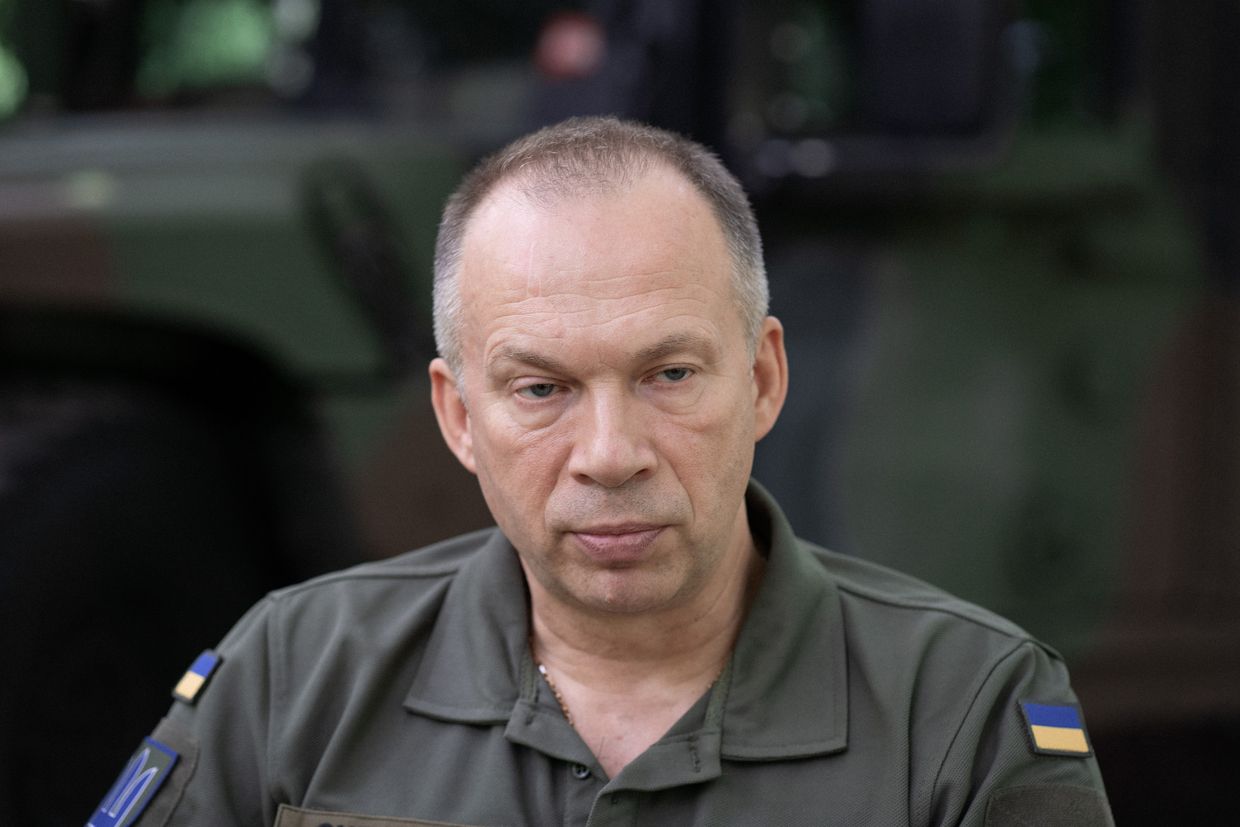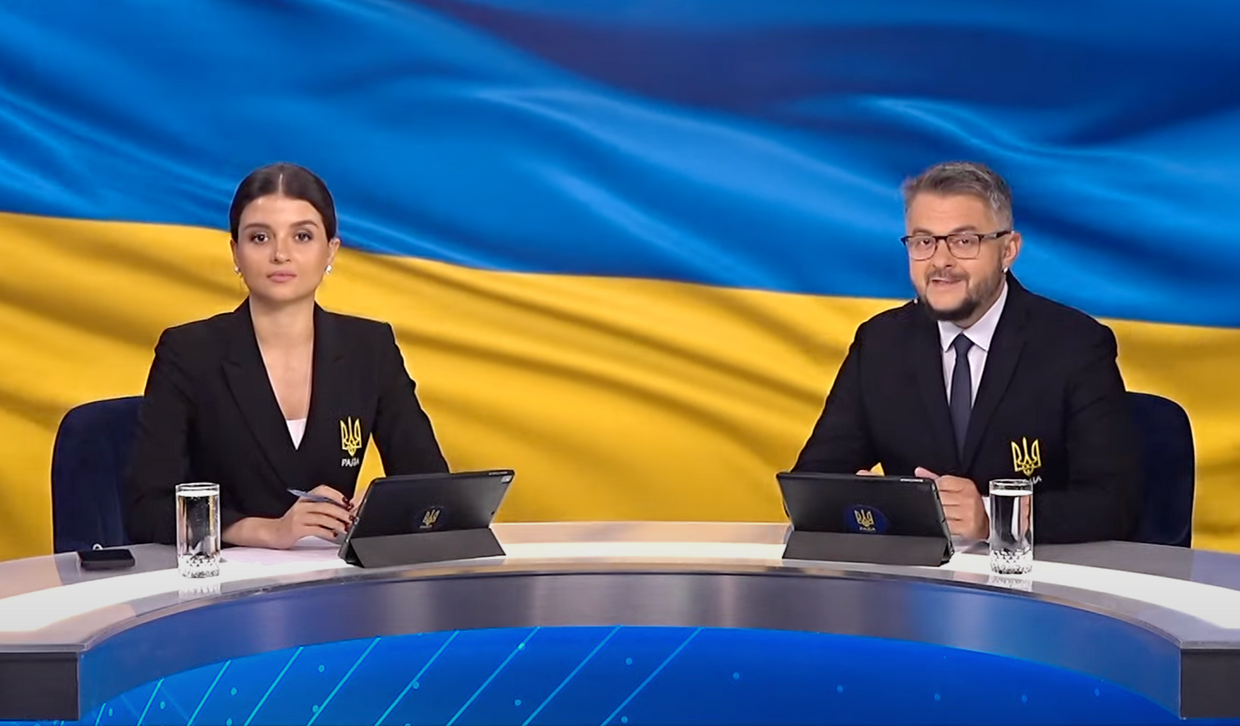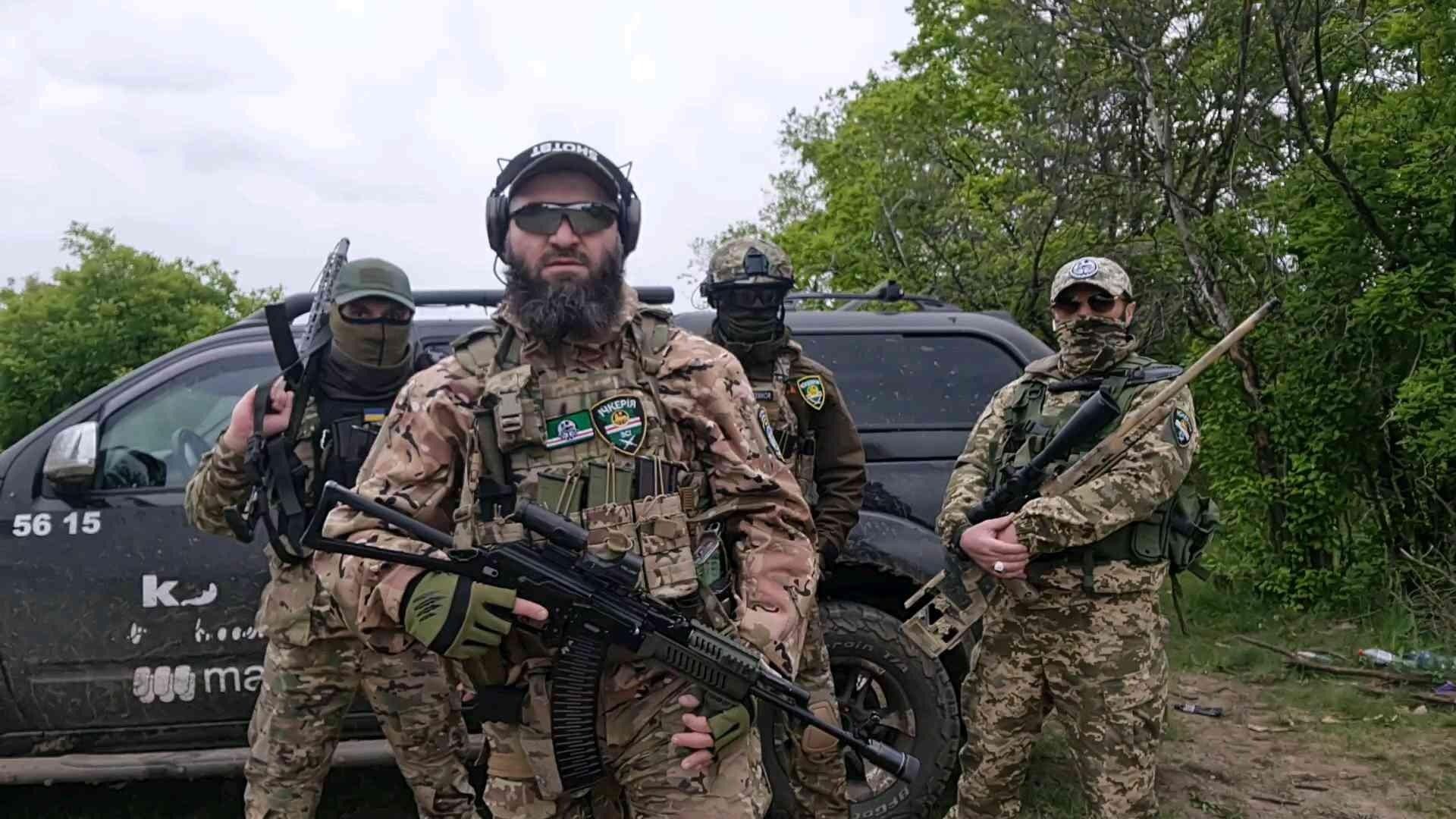Our readers’ questions about the war, answered. Vol. 5

Members of Ukraine's 72nd Brigade use binoculars to search for Russian drones on Feb. 23, 2024 near Marinka, Ukraine. (Chris McGrath/Getty Images)
Editor's note: We asked members of the Kyiv Independent community to share the questions they have about the war. Here's what they asked, and how we answered. Join our community to ask a question in the next round.
Read our previous answers here, here, here, and here.
Question: What is morale like on the front line?
Answer: The morale is not great. Soldiers who have been fighting since 2022 are exhausted – psychologically more than physically. They just want to go home.
The front-line situation is only worsening no matter how many men are killed or wounded each day on both sides, and it's extremely difficult psychologically to keep going, facing near-death experiences in a war with no end. Some soldiers, even commanders of infantry companies, openly say they lack motivation. Others, despite everything, are still highly motivated, and continue to do everything they can to win the war as fast as possible. And all of them are continuing the fight and doing everything possible to win this war. – Asami Terajima, reporter
Question: What do you think about the changes in military leadership at this sensitive time (not that there isn't a sensitive time in war)?
Answer: The changes would come sooner or later. The President's Office decided to change the military leadership a while ago, and it's good that it finally happened and there is a clear command structure in place.
I don't think that February 2024 is a more sensitive time than any other period prior. There was a longstanding rift between the political and military leadership, and it's good for the country that there's now clarity in the ranks. – Oleksiy Sorokin, deputy chief editor
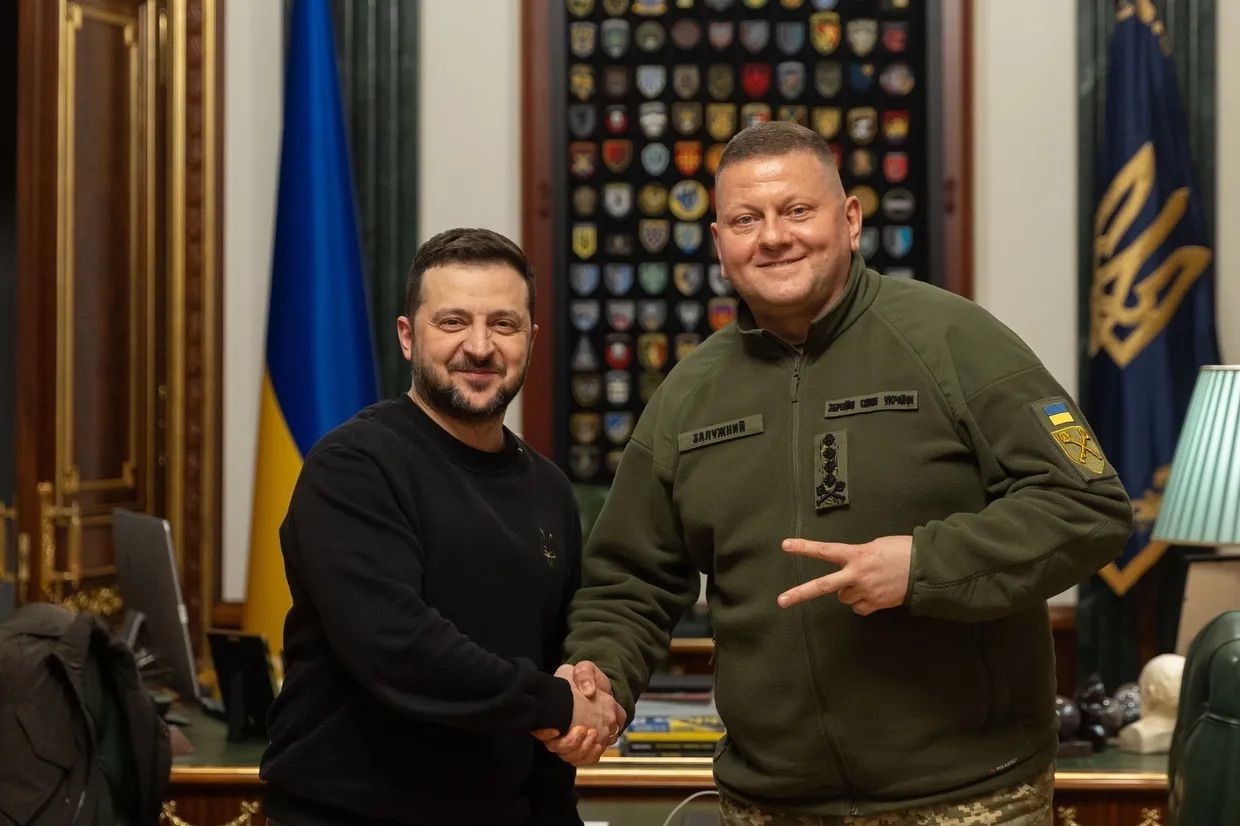
Question: I have read the descriptions of General Syrskyi as not liked by the rank-and-file soldiers who, it says, think of him as an old Soviet-style commander, yet that he also helped lead the army toward NATO military standards. Can you shed any light on him and this apparent contradiction?
Answer: Commander-in-Chief Oleksandr Syrskyi has been serving in the Ukrainian army for over 30 years. During the full-scale invasion he led the Ground Forces and before that he took an active part in Ukraine's defense against Russian troops in eastern Ukraine.
Saying that one of the key military commanders in Ukraine's Armed Forces is bad and lacks the skills undermines the fact that troops under his command have performed extremely well.
However, it's true that Syrskyi isn't popular.
First, it's hard to fill the shoes of General Zaluzhnyi, who, leading Ukrainian troops in the hardest time of the country's history, showed skills and gained a god-like status in Ukraine. Everyone who comes after Zaluzhnyi will be looked down on and will have to prove themselves.
Second, some say that holding on to Bakhmut for so long was a mistake and that it would make more sense for Ukrainian troops to withdraw earlier and save the lives of thousands of soldiers.
Syrskyi was in charge of the defense of Bakhmut, and he's often blamed for the operation. But do we really believe that Syrskyi acted in his own will and Zelensky and Zaluzhnyi did not take part in the decision-making? – Oleksiy Sorokin, deputy chief editor
Question: I read that front-line combat units are extremely under-manned and worried about breaking under pressure. Why is Zelensky so resistant to calling up more citizens if the need is so extreme?
Answer: Ukraine doesn't have an additional 500,000 men who are willing to go and fight. To replenish the ranks, Ukraine will have to draft men, some of whom would be against taking arms. This is an extremely complicated decision, both from the military and political standpoint.
From a military point of view, having a large number of unmotivated and poorly trained soldiers might lead to a weaker military, not a stronger one. From a political point of view, having men being drafted against their will will decrease the popularity of the government.
And as of now, there's no way to solve this problem. The government is attempting to make serving more attractive while attempting to find soldiers elsewhere. So far, it doesn't seem to work. – Oleksiy Sorokin, deputy chief editor
Question: Will Zaluzhnyi go into politics?
Answer: Former Commander-in-Chief Valerii Zaluzhnyi never publicly expressed a desire to become a politician. However, it's an open secret that the President's Office was dissatisfied with the fact that Zaluzhnyi has a comparable electoral support rate to that of President Volodymyr Zelensky.
According to a nonpublic poll leaked in December, Zelensky would beat Zaluzhnyi by a small margin if both men ran in a hypothetical presidential election. I'm sure Zaluzhnyi and his team also saw this poll.
But will we see Zaluzhnyi in politics, we don't actually know. – Oleksiy Sorokin, deputy chief editor
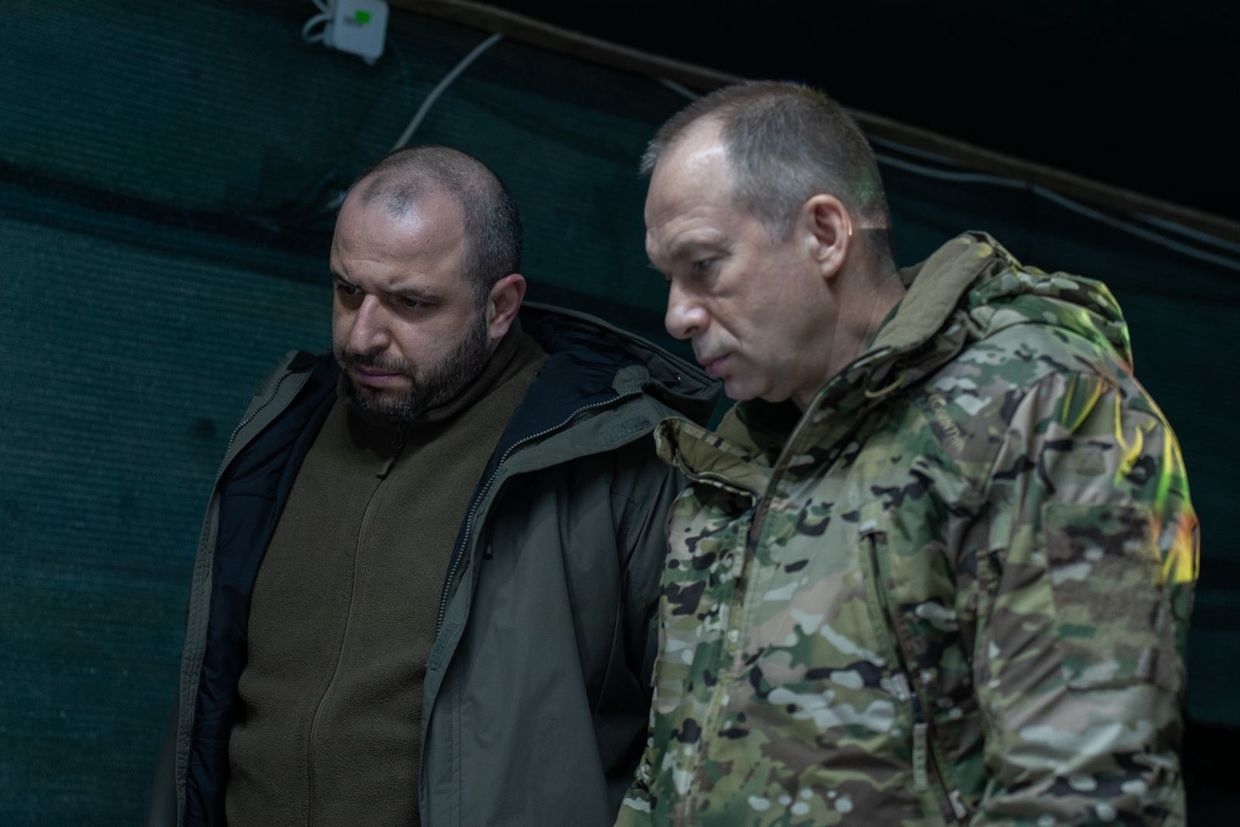
Question: What efforts does Ukraine make to counter Russian propaganda?
Answer: It is not an overstatement to say that Ukraine's resistance to Russia's full-scale invasion did a lot on its own to counter Russian propaganda that Ukraine was a "failed state" that would "fall in three days" or that Ukrainians were just "waiting for Russia to liberate them from the Nazi regime in Kyiv."
Since the start of the full-scale invasion, Ukrainian and foreign journalists, as well as civil society actors, have been working to show the world the truth about what Russia is doing in Ukraine. This has made it hard for Russia to conceal the crimes it commits every day against the Ukrainian people behind its bogus propaganda about the country or outright denial of what is happening.
That being said, Russian propaganda is still very effective all over the world and, until the start of the full-scale invasion, played a role in shaping opinions in Ukraine. In the Ukrainian territories that have been occupied since 2014, Russian state media and other propaganda are the only sources of information at times.
Under martial law, implemented at the start of the full-scale invasion, the airwaves are considered critical infrastructure and a part of national security. After February 2022, the country's main TV channels were essentially unified underneath one government-led "Telemarathon" that has 24/7 coverage of the war.
President Volodymyr Zelensky and his administration have been criticized for the move, and many people in Ukraine are tired of the Telemarathon. The administration has argued that controlling the message is crucial in combating any Russian narratives that the Kremlin might try to spread in Ukraine.
The real test to fighting Russian propaganda is in occupied territories, especially those that have been under the Kremlin's control for nearly 10 years now. Reintegrating people who have been living with Russian propaganda around them for a decade is no easy task. The government will have to do a lot of work to build trust in these areas when they are finally brought back under Ukrainian control. – Lili Bivings, business editor
Question: In a recent report, there was a mention of Ukraine lowering the mobilization age from 27 to 25. Are the mid-20s considered the minimum age for soldiers in European countries?
Answer: The soldiers in Ukraine are usually over 30. I see fewer guys under 30 in the trenches than those over that age.
Multiple infantry company commanders said they are now receiving very few or no guys to refill the losses, and those guys typically are 40+, and they get sick quickly and can't go to the front because of health conditions or other reasons.
It's very difficult to find fit, motivated fighters who can endure very intensive combat tasks for a long period. I'm not sure if lowering the mobilization age would have any practical impact other than just the psychological impact that would make younger guys more aware that they could also be drafted.
Judging by the testimonies of countless soldiers and officers across the front line on how many new recruits they received, the mobilization system in Ukraine is working very poorly, and the country is struggling to find men who are fit and motivated enough to fight and have experience. – Asami Terajima, reporter
Question: Would cluster munitions be a feasible solution for clearing Russian minefields, or is the density of bomblets too low or the distribution too random?
Answer: Cluster munitions like the DPICM 155mm shells transferred to Ukraine in the summer are meant to do damage to the soft, meaty targets that are enemy infantry, as well as unarmored vehicles. They are, as you say, inappropriate for clearing mines.
Anti-personnel and anti-tank mines are designed to be set off by advancing enemy forces, and the explosive force of a small bomblet landing somewhere nearby is not going to do it. For that, there are mine-clearing line charges, of which Ukraine had Soviet and Western versions (but nowhere near enough), which are equipped with a very large amount of explosives laid out in a line to properly and certainly clear everything in its path. – Francis Farrell, reporter

Question: Can you explain why it's so difficult for President Zelensky to root out corruption?
Answer: First, I personally don't think Zelensky is focused that much on rooting out corruption. One of the most striking examples of his reluctance to fight corruption is his refusal to fire his Deputy Chief of Staff, Oleh Tatarov, despite the fact that he has been charged with bribery.
Second, rooting out corruption may involve many technical difficulties, but eventually, the issue comes down to the presence or absence of political will. If political will exists, and if the ruling party holds an absolute majority in parliament (like Zelensky's party), eliminating corruption should be possible.
This involves firing top officials when the slightest suspicion of corruption emerges.
And surely, martial law makes it easier because the Zelensky administration now has more power than any other administration since Ukraine became independent in 1991. – Oleg Sukhov, reporter

Question: Is religion important in the Ukrainian army? Is it important in the Russian army?
Answer: There is a saying that "there are no atheists in the trenches." There are. But certainly, there are more believers, and they're mostly Orthodox Christians.
The Ukrainian Armed Forces have chaplains attached to many units.
In the Ukrainian army, there are also battalions named after Islamic religious figures, such as the famous Sheikh Mansur Battalion, named after an Islamic leader who led an anti-Russia resistance in the 18th century.
Due to the size of Russia and the diversity of the peoples it controls, Christians, Muslims and Buddhists serve in the Russian army. For example Chechens and Tatars follow Islam, there are also Buddhists from Buryatia, or various people with pagan beliefs from Yakutia or Tuva. – Alexander Khrebet, reporter
Question: Are Ukrainian women allowed to join the military forces?
Answer: Yes, Ukrainian women are allowed to join the military. However, all female soldiers who currently serve in the Armed Forces have volunteered, as Ukraine does not conscript women. Also, even though women have been fighting alongside men since Russia first invaded Ukraine in 2014, the government officially allowed them to serve in front-line combat positions starting only in 2018. – Dasha Shulzhenko, reporter
Question: Why do the Russians shell Sumy Oblast on a nearly daily basis? There must be more to it than just the proximity to the border?
Answer: Russian forces not only shell Sumy Oblast, but they also regularly conduct cross-border raids into the area, which has a very long, heavily forested border that is hard to man effectively – especially since Ukraine needs all the forces it can muster on the active front lines in the south and east.
I have a friend fighting near Avdiivka who is from one of the villages right on the border in Sumy Oblast, and he says that for him, returning to visit relatives at home is like returning to the war zone, as Russian drones are consistently flying over the village, ready to target anything that seems suspicious.
Because it is in the Russian mortar and FPV drone range, the village is in a gray zone between Russian and Ukrainian positions. All of this happens with the aim of keeping Ukraine on its toes, forcing the country to keep significantly sized forces up on the relatively quiet northern border that could be better used elsewhere. – Francis Farrell, reporter

Question: Have any Russian soldiers defected from the Russian army to seek asylum in Ukraine (or other countries)? If so, have these soldiers helped the Ukrainian military forces?
Answer: Since the start of the full-scale invasion, some of the Russian soldiers have defected to seek asylum in Ukraine. Some of them joined the Ukrainian army to fight Russia.
The most prominent case of defecting was a Russian helicopter pilot. He landed his Mi-8 helicopter at an airfield in Ukraine to give himself up to the authorities while two other crew members on board did not know where the helicopter was headed. They didn't want to surrender and were killed.
However, the helicopter pilot was later killed in Spain.
There is also a well-known case of a Russian convict-turned-trooper who was captured as a prisoner of the war in Ukraine and defected to the Ukrainian side right before the POW swap with Russia. The man has joined the units of the Ukrainian army formed with the Russian nationals.
Ukraine also launched a hotline for the Russian troops to surrender. As of September, 215 requests have been processed, and over 800 requests are in progress. The Ukrainian agency for the POWs' treatment told the Kyiv Independent that every two days, one Russian serviceman surrendered with the hotline. – Alexander Khrebet, reporter
Question: What is the situation with regard to renewing and replacing Ukrainian identity documents in occupation?
Answer: Almost immediately after the occupation of part of Ukraine's territory in 2014, Russia began issuing its passports to Ukrainians. Often, the nature of this passportization process is coercive.
The Russian occupying authorities have been creating conditions over these years in which it was almost impossible to remain in the occupied territory without Russian documents.
In the latest development, Russian President Vladimir Putin signed an executive order in late April 2023 that set a deadline for applying for Russian citizenship in the occupied areas of Ukraine. Those who refuse and choose to hold onto their Ukrainian passports face losing their property rights, prison sentences, and deportation from their homes.
However, some Ukrainians have managed to live without Russian documents for years in the occupied territories. The Kyiv Independent talked to one of them. For more details, read here.
Forced conscription often follows forced passportization, which constitutes a war crime.
Information that Ukrainians from the occupied territories without Ukrainian documents are treated with suspicion may be sporadic. There are known cases where Ukrainians, leaving the occupied territories, arrived in territories under Kyiv's control without any documents at all.
In such cases, they undergo verification and are issued temporary documents afterward.
The Ukrainian government has established several mechanisms for Ukrainians without Ukrainian documents to still be able to cross the border. A special form can be filled out online or directly at the border crossing point.
Opinions among some Ukrainian officials are divided. Some urge Ukrainians in the occupied areas not to take Russian documents, while others, on the contrary, advise taking them to minimize possible reprisals from Russian occupying administrations and special services.
Having Russian documents is not a crime under Ukrainian law, as Kyiv does not recognize these documents, except in certain cases, such as death or birth certificates.
Many Ukrainian document databases are digitized, and for most Ukrainians from the occupied territories, obtaining new documents is not difficult. In cases where there is no data in the database due to various reasons, a special procedure has been developed, which was introduced years ago.
Identity can be confirmed by other documents, such as a school or university diploma or others. If, for various reasons, a person has absolutely no documents that can confirm their identity, and they are not in the online database, two or more witnesses can be brought forward to confirm that this is indeed the person they claim to be. – Alexander Khrebet, reporter
Question: Ukraine seems to be at odds with its neighbors over export/agricultural issues – Western press reports blockades at various borders. What is being done to resolve the economic issues with its neighbors?
Answer: The short answer is that there is not much Ukraine can do. There are many reasons why farmers across Europe are protesting.
Protesters in France, Belgium, Spain, Germany, Poland, and other EU countries are dissatisfied both with what they say is increased competition abroad, partly from Ukraine, and with EU agricultural policies, including new measures put in place to fight climate change that farmers say increase the cost of doing business.

On top of that, prices for agricultural products have been falling, and farmers are struggling financially. Some of the farmers protesting feel that it's unfair for their governments to give money to Ukraine to help the war effort when they are struggling to make ends meet.
Going back a bit, the reason for the increase in the presence of Ukrainian agricultural goods on EU markets is that Ukraine's Black Sea ports have remained largely blocked since the start of the full-scale invasion. As a result, Ukraine has had to export out of its western borders, which has led to an influx of both products and trucks carrying goods through the different countries.
Since last summer, Ukraine's western neighbors have had unilateral bans on the domestic sale of Ukrainian agricultural products in place, although their transit is still allowed. The permit-free regime for Ukrainian truckers is still in place, which has frustrated farmers and truckers in Ukraine's neighbors who say that they can't compete with lower prices for hauling.
Considering this is an EU-level problem, and the war continues, there isn't a whole lot that Ukraine can do to resolve the issue. Farmers pushing back on EU policies is nothing new. The disruptions or changes caused by the war in Ukraine have simply added fuel to the fire.
Nonetheless, Ukrainian officials are trying to negotiate with their Polish counterparts and are currently negotiating an agreement that would set quotas for some agricultural goods coming from Ukraine to Poland. Reportedly, the two sides could come to a final agreement in the next month. – Lili Bivings, business editor
Question: It was suggested early in the war that Ukraine might finance its war effort by issuing war bonds. Did anything ever come of this idea?
Answer: The Ukrainian government began issuing war bonds at the start of the full-scale invasion. Auctions are held weekly, with the last auction on Feb. 13 bringing in roughly $145 million to the state budget. Ukraine sold $7 billion worth of war bonds in 2022, $15.5 billion in 2023, and already $840 million this year, according to the Ministry of Finance. – Dominic Culverwell, business reporter
Question: What can private citizens like me do to help out with the war effort?
Answer: This is a question I see asked frequently. Probably the most effective thing that the average citizen can do is donate. Two trusted charities are Come Back Alive, which has been working with Ukraine's Armed Forces since 2014, and the Serhiy Prytula Foundation, which helps the military by providing equipment and civilians through humanitarian aid. These two charities are probably the largest and best known, but there are a ton of initiatives that collect donations and procure aid.
There are other ways to help as well, including contacting your government representatives and letting them know you're in favor of aid for Ukraine – especially if you are a U.S. constituent, as the current aid package is held up in Congress. Even supporting Ukrainian brands, reading the news from Ukraine, or sharing information on your social media helps – every bit counts. – Brooke Manning, community manager

